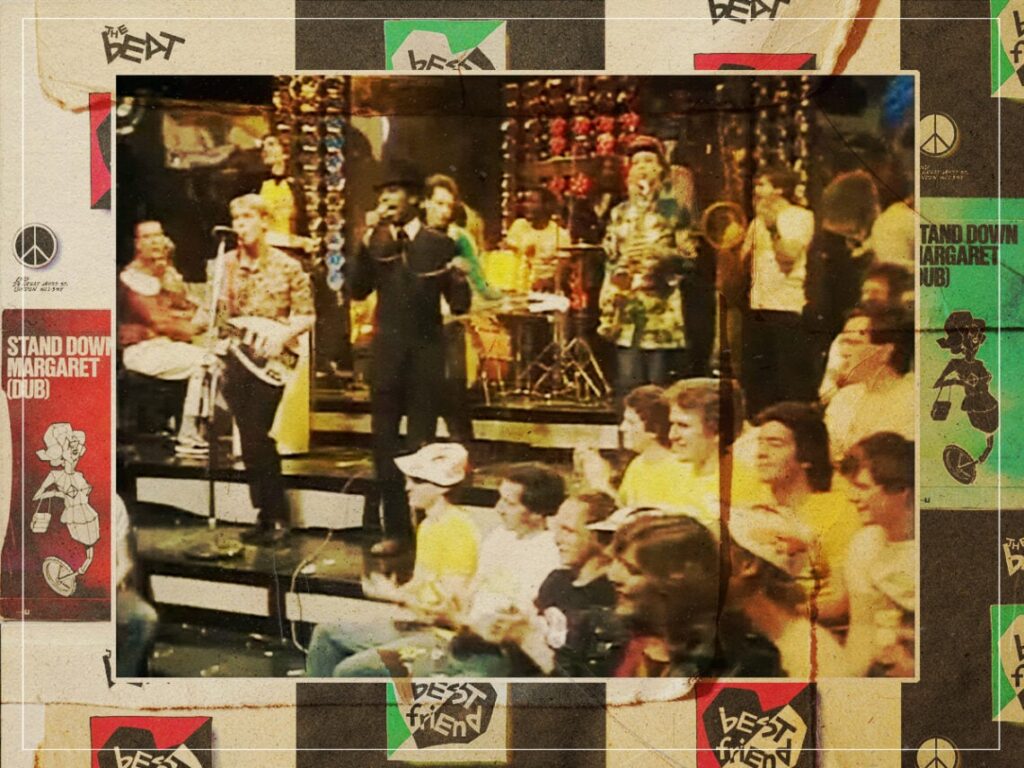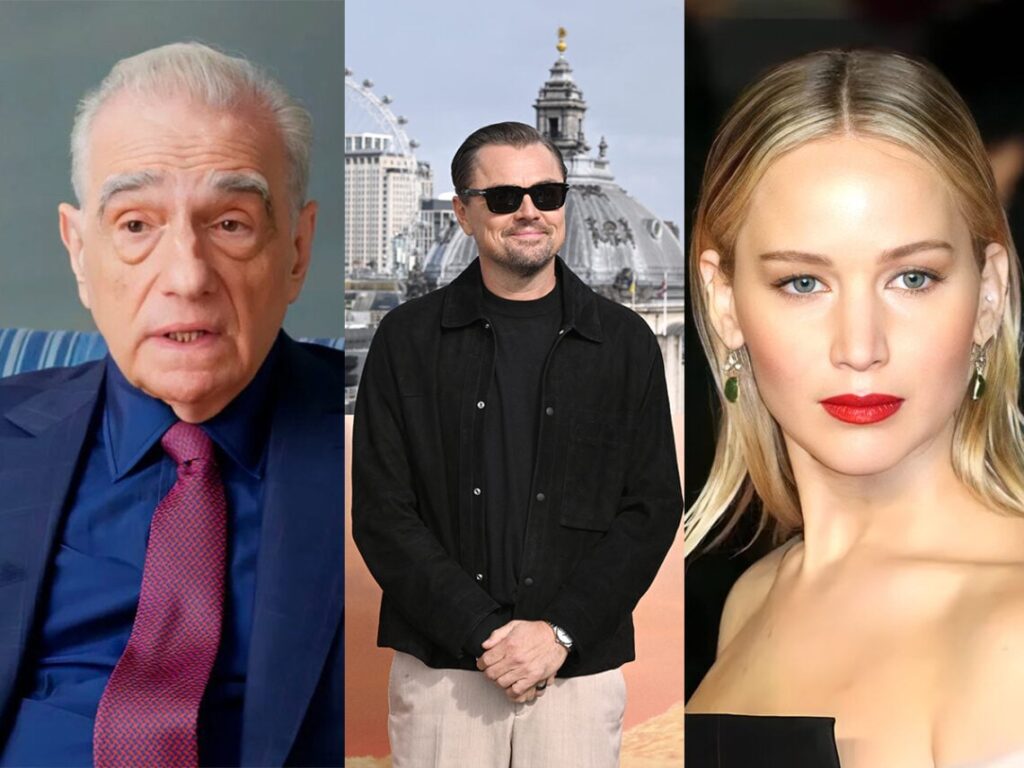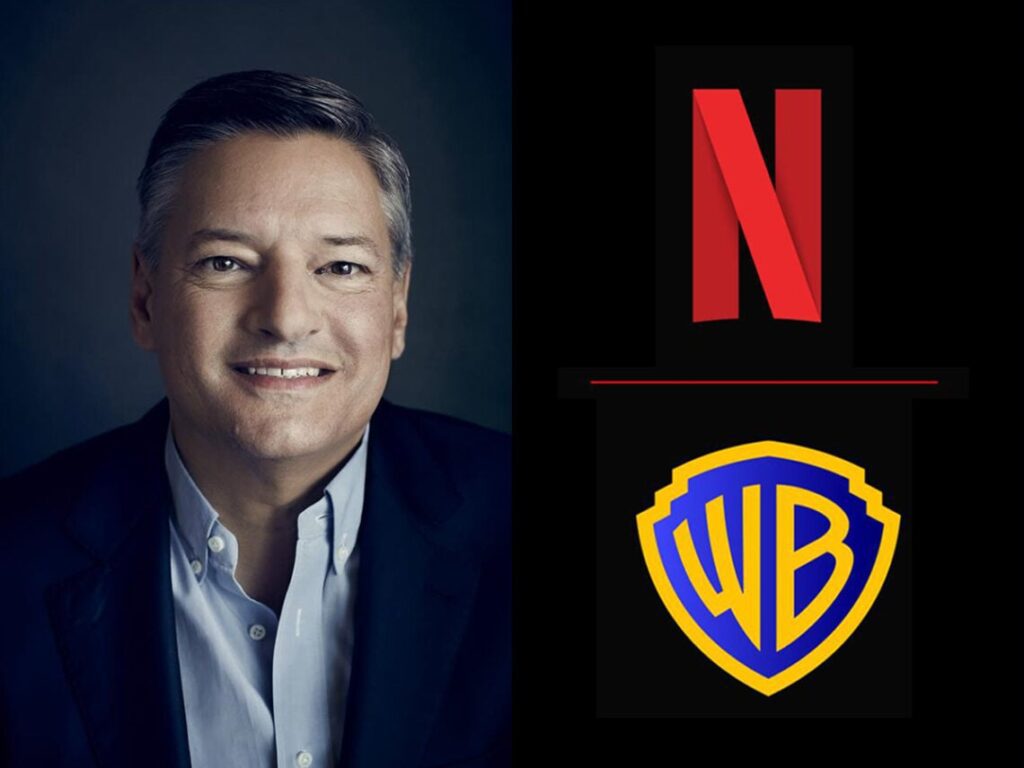‘Stand Down Margaret’: When The Beat brought anti-Thatcher rebellion to children’s television
 Posted On
Posted On
(Credits: Far Out / The Beat / YouTube Still)
Nowadays, in the wake of American third wave ska, the music genre that originated in Jamaica is often reduced to something of a novelty act. In reality, though, the roots and history of ska and rocksteady music are inherently political; from soundtracking the fight for Jamaican independence to providing a voice for disenfranchised Windrush immigrants in the United Kingdom. Ska was perhaps at its most politically charged during the 2 Tone movement, which sought to combine old-school ska rhythms with a punk rock sensibility.
The 2 Tone movement was brought about by the musical mind of Jerry Dammers and The Specials, but they were far from being the only group in the Midlands to blend ska and punk. A little further west on the A45, The Beat formed in Birmingham in 1978. Fronted by the incredible duo of Dave Wakeling and Ranking Roger, The Beat succeeded in creating some of the most enduring tracks of the 2 Tone era. As opposed to the punk scene which had predated them, though, The Beat and other 2 Tone acts succeeded in having commercially successful tracks.
The Beat were sometimes criticised for their favouring of pop commercialism, but the fact remains that going on television shows like Top of the Pops helped to spread their important message of love and unity to much wider audiences. While songs like ‘Mirror in the Bathroom’ or ‘Tears of a Clown’ provided the band with their greatest commercial hits, it did nothing to distract them from the political aims that The Beat was built upon. In August of 1980, they released what was, undoubtedly, their most politically-charged track, ‘Stand Down Margaret’.
With lyrics like “I see no joy, I see only sorrow, I see no chance of your bright new tomorrow”, the track was clearly an attack on the regressive policies of then-Prime Minister Margaret Thatcher. The 2 Tone scene had been incredibly critical of Thatcher from the start of her reign, and The Specials’ magnum opus ‘Ghost Town’ soon became the definitive indictment of Thatcherite social policy. Before that, though, The Beat’s ‘Stand Down Margaret’ provided an anthem for the growing number of people alienated and oppressed by the neo-liberalist politics of the Conservative party.
The last place you expect to hear the revolutionary anthem ‘Stand Down Margaret’ was on the BBC. After all, the Beeb is infamous for banning songs that are in any way controversial, and Top of the Pops was openly antagonistic when it came to the abrasive sounds of punk. Thankfully, though, the BBC was also very easy to fool during the 1980s. So, when ‘Stand Down Margaret’ started to rise up the charts, The Beat were offered a rare opportunity to share their anti-Thatcher single to the mainstream, primetime audiences on the long-forgotten children’s game show Cheggers Plays Pop, hosted by Keith Chegwin.
The Beat appeared on the gameshow a handful of times, but never with something as politically charged as ‘Stand Down Margaret’. When it came time to perform, the band had to employ a few tricks to get the song past the watchful eye of the BBC. In 2013, vocalist Dave Wakeling recalled Uncut, “We had to get the song on by stealth,” explaining, “Our genial old Jamaican saxophonist, Saxa, explained to presenter Keith Chegwin that ‘The Stand Down Margaret’ was an old Caribbean dance”.
The frontman continued: “‘Come now Cheggers,’ he was saying, ‘let me show you how to dance The Stand Down Margaret…’ and he invents some ridiculous little dance routine. Then we start playing the song and unzip our jackets and we’ve all got T-shirts emblazoned with pictures of Maggie Thatcher”. The cat was out of the bag, but by that time, there was nothing the BBC could do.
The Beat had succeeded in bringing the fight against Thatcher to teatime audiences across the United Kingdom, bumping the single up a few places in the charts in the process. These sales had real political consequences, too, as the single was sold in aid of the Campaign for Nuclear Disarmament (CND). So, if you think about it, Keith Chegwin aided the campaign about nuclear weapons and Thatcher’s government. Needless to say, the band was not invited back onto Cheggers Plays Pop.
[embedded content]


